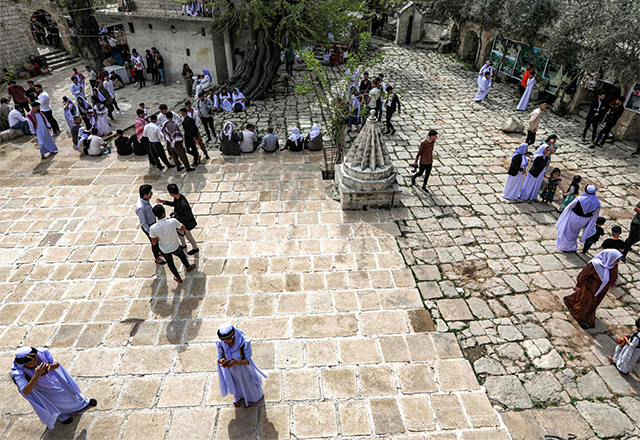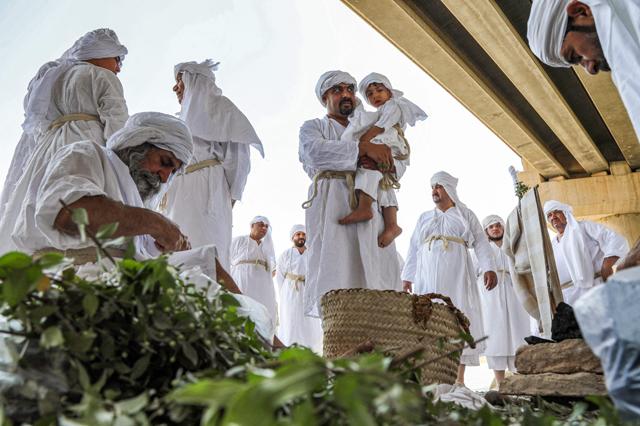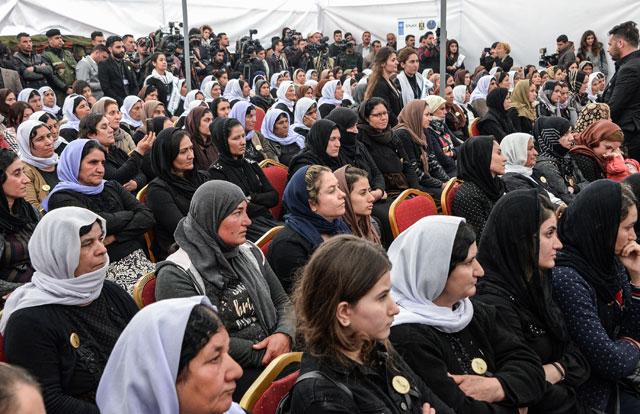You are here
More than 200,000 Yazidis still displaced in Iraq — UN
By AFP - Aug 04,2022 - Last updated at Aug 04,2022
GENEVA — Eight years on since the Daesh group's massacres of Yazidis, more than 200,000 survivors are still displaced from their homes in Iraq, the United Nations said Thursday.
The needs of displaced persons living in and outside camps, and returnees remain high said the UN's International Organisation for Migration (IOM).
After seizing swathes of Iraq in 2014, Daesh terrorists carried out horrific massacres, including in the northern region of Sinjar where the Kurdish-speaking Yazidi minority — a monotheistic, esoteric community — has long been rooted.
A lack of adequate shelter and basic services such as running water. electricity, health care and education is making durable solutions difficult for Yazidis returning home or seeking to do so.
"Families are forced to focus on meeting their most basic needs rather than on meaningfully rebuilding their lives," the IOM said.
Daesh destroyed around 80 per cent of public infrastructure and 70 per cent of civilian homes in Sinjar city and its surrounding areas, the Geneva-based agency said.
Daesh fighters also destroyed the region's natural resources and farmland.
"Mass executions, forced conversions, abduction and enslavement, systematic sexual violence and other heinous acts" perpetrated by Daesh "reflect a genocidal effort to destroy this historically-persecuted ethno-religious minority," the IOM said.
More than 2,700 people remain missing, the agency added.
Some are known to be held by Daesh, which persecuted Yazidis for their non-Muslim faith, but the whereabouts of others is uncertain.
Generational impact
Survivors among the non-Arab, Kurdish-speaking minority are unable to mourn lost loved ones, many of whom lie in unmarked and mass graves still awaiting exhumation, said the IOM.
"The scale of the atrocities committed against the Yazidi community is such that it will have an impact on generations to come," said Sandra Orlovic, IOM Iraq's reparations officer.
"The government of Iraq and the international community need to create conditions that will assure Yazidis that such atrocities will not happen again and support them in healing and rebuilding their lives."
The Norwegian Refugee Council said in May that violence and sluggish reconstruction had prevented Sinjar city's Yazidi, Muslim Kurdish and Arab residents from returning home, as had a surge in violence earlier in the month.
"A staggering 99 per cent of those who applied for government compensation had not received any funding for damaged property," the aid group added.
In early May, fighting broke out between Iraqi troops and Yazidi fighters affiliated with Turkey's banned Kurdistan Workers' Party.
More than 10,000 people fled the fighting, adding to the displaced population.
Related Articles
LALISH, Iraq — One by one, members of Iraq's minority Yazidi community light oil lamps to mark their New Year at a sacred shrine, but for Om
BAGHDAD — Violence and sluggish reconstruction have prevented the return to Iraq’s north-western town of Sinjar of its predominantly Yazidi
KOJO, Iraq — Iraqi authorities on Friday opened a first mass grave containing victims of the Daesh group in the Yazidi stronghold of Si



















